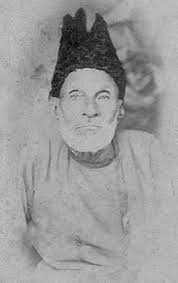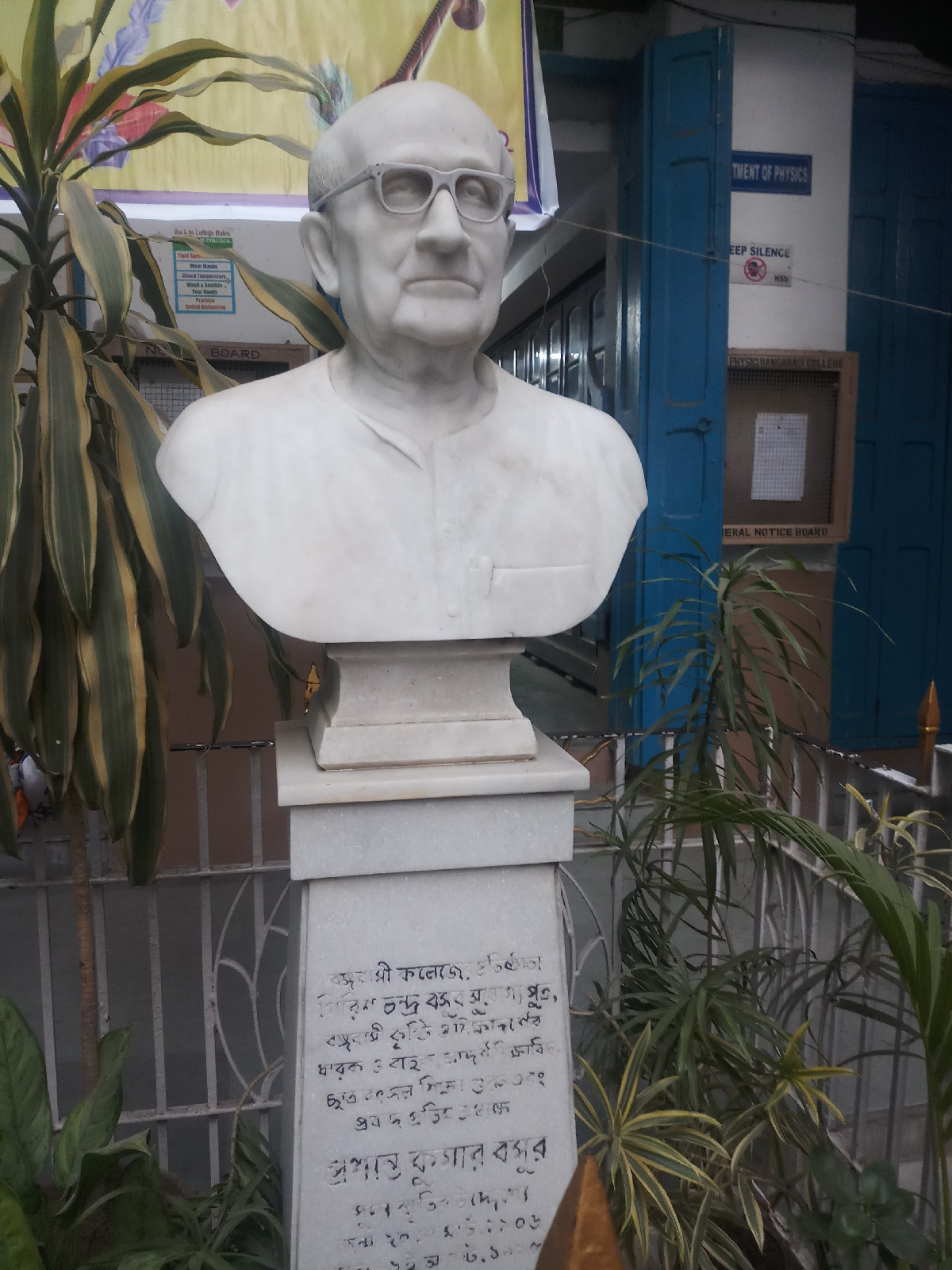Sarala Debi Chaudhurani: a poignant personality of Bengal renaissance
An exceptional woman who performed multifaceted roles of a social activist, female educationist, writer and singer, Sarala Devi Chaudhurani was acclaimed as the founder of the first women's organisation in India – The Bharat Stree Mahamandal. Due to her towering personality she is often referred to as ‘Bengal’s Joan of Arc’.
Being born to a renowned Bengali
family in 1872, Sarala Devi’s talents and leadership skills were nurtured in
her formative years. Her father Janakinath Ghosal was the secretary of the
Bengal Congress and a prolific writer while her mother, Swarnakumari Devi was a
successful woman novelist of Bengali literature. From her maternal side, she
was the granddaughter of Debendranath Tagore and
the niece of Rabindranath Tagore. She spent a significant part of her growing
years at Jorasankho as her father was pursuing his legal studies at England. Samir
Sengupta writes in his book ‘Rabindranather Attiyo Sojon’ that Sarala Devi got
opportunities to interract with several noted leaders of the freedom movement
at Jorasankho, which helped shape her thoughts and perceptions. Swami
Vivekananda opined that Sarala Devi had received perfect education which should
be embodied by all women. Swamiji urged her to travel overseas to represent the
cause of rights and freedoms for women in the subcontinent, however, why she
did not undertake such a venture is unknown.
Sarala Devi
overcame societal obstacles regarding women pursuing higher education and went
on to obtain her Bachelor’s degree in English from the erstwhile Calcutta
University. While answering the history paper at the Entrance exam she sturdily
protested against Macaulay’s attempt to underestimate Bengali people. This made
both her teachers and family members aware of her personality. Not only was she
awarded the highest marks by examiner N. Ghosh but was also showered with
praises. She was a student of Bethune College pursuing English Honours and was
the recipient of the prestigious Padmavati Gold Medal for her
excellence and was proficient in Persian, French, and Sanskrit. She is said to
have attended classes conducted at the Science Association by physician Mahendralal
Sarkar, accompanied by her brothers, as women attending such scientific meets
was frowned upon by the society at that time. After her graduation, she worked
as an assistant superintendent at the Maharani Girls School, Mysore. Later she
founded The Bharat Stree Shiksa Sadan – a school for girls in 1930.
An active
participant of the freedom movement, Sarala Devi imbibed patriotism amongst
fellow natives by writing and singing songs. She composed the music of Bande Mataram, only the music of the first
two lines being done by Tagore himself. Her rendition of the song at Banaras
Congress Session despite the British Government’s ban on it was quite a
sensation. It was while staging her songs that she met Gandhi in 1901, who accepted
her hospitality in later years as well. This association was often viewed as
controversial by the society. However, Sarala Devi supported Gandhi in all his
political activities and even entered in marital association between her only
son Deeepak and Radha, the granddaughter of Gandhi. She also took part in
the Swadeshi Movement and is also believed to have launched an
underground revolutionary group. In 1904, she opened a shop called “Lakhir
Bhandar” in the Bowbazar neighbourhood of Calcutta that sold only Swadeshi
products. Contrastingly, she was also deeply influenced by Subhash Chandra
Bose’s political views of achieving freedom only through violence against the
British. She travelled extensively over undivided India speaking openly at
national conferences.
Married at the age
of 33 years to lawyer and journalist Pandit Rambhuj Dutt Chaudhary, a member of
the Indian National Congress, Sarala Devi assisted her husband
editing in an Urdu weekly newspaper named Hindustan and also
started an English edition of the paper. She and her husband vehemently
spoke against the Jallianwalla Bagh Massacre resulting in the arrest of the
later. After marriage, she continued with her revolutionary work in Punjab and
opened organisations for women such as “Widhwa Shilpashram”, where widows were
given education and vocational skills. The
Bharat Stree Mahamandal aimed at women empowerment irrespective of their
caste, societal status and religion. After its inception at Allahabad, this
organisation spread out to Lahore, Hazaribagh, Delhi, Karachi, Kanpur,
Calcutta, Hyderabad, Amritsar, Bankura and Midnapur.
Sarala Devi inherited her mother’s passion for music and was deeply
inspired by the bard himself. She was trained in eastern vocals from an early
age and had a foreign tutor to impart lessons in western vocals and piano
recitals. She composed the music of verses penned by Tagore from the tender age
of twelve. She composed about 40 songs each having a distinct flavour. Her
composition was sung at various occasions to commemorate the achievements of
Sir A.J.C. Bose. She rendered music to the Rig Veda sloka ‘Sangachhadhwam
Samvadadhwam’ at the request of Nehru which was sung as chorus at the Indian
National Congress, Allahabad session. Her musical brilliance received immense
appreciation not only from Rabindranath Tagore but Maharshi Debendranath Tagore
as well. In her book of songs called Satagan the compilation of lyrics and notations
composed by Raja Rammohan Roy, Dwijendranath, Satyendranath, Jyotirindranath,
Rabindranath Tagore, Soudamini, Swarnakumari Devi, Bankimchandra Chattopadhyay,
Gobindo Das and others can be found. She organised several musical recitals and
dance dramas. ‘Mayar Khela’ was staged for the first time by the students of
Bethune College in the year 1883 under her direction.
Sarala Devi edited various
magazines including Bharati, founded by Tagore. She started the
practise of giving remuneration to the writers of the magazine and was
monumental for recognising the narrative brilliance of Sarat Chandra
Chattopadhyay. She also translated the works of Sister Nivedita and
Gandhi. Some of her notable publications
include Nababarsher Svapna, Banalir Pitradhan and her autobiography Jibaner Jharapata.
She also authored a book titled Ahitagnika
for school students to generate awareness concerning the freedom struggle. She
was a passionate believer of courage, adventure, physical strength, protest of
misdeeds and service to others and initiated the Birashtami Utsav (Festival of Heroes), on
the second day of Durga Puja. This was marked by commemorating and worshipping
heroic men.
She retired from public life in
1935 and indulged in religious pursuits, accepting Bijoy Krishna Goswami
as her spiritual teacher. Sarala Devi died on 18th August 1945
leaving a poignant mark on freedom movement and renaissance of Bengal. To her goes
the credit of collection and preservation of notations despite several odds
till her last days and thus enriched the treasure trove of Bengali music. In
her memoir, revolutionary Bina Das mentions
a public address delivered by Sarala Devi as alumna of Bethune College. At the
Albert Hall, students of Bethune College and Presidency College gathered and
were felicitated for their courage in protesting against the Simon Commission along
with forcing the expulsion of the college principal who opposed it. At this
gathering, Sarala Devi said in a public address: “My place today is by the side
of students. I am proud to have been a student at Bethune College.”
Published in Bethune College Magazine 2021
References:
Bethune School and College Centenary Volume, 1849-1949
Chitra Deb- Thakurbarir andormahal
https://feminisminindia.com
https://indianexpress.com › Lifestyle
.jpg)




Comments
Post a Comment